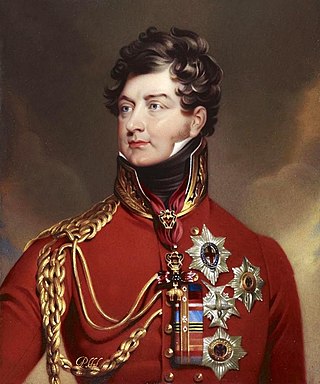
A prince regent or princess regent is a prince or princess who, due to their position in the line of succession, rules a monarchy as regent in the stead of a monarch, e.g., as a result of the sovereign's incapacity or absence.

Philippe is King of the Belgians. He is the eldest child of King Albert II and Queen Paola. He succeeded his father upon the former’s abdication for health reasons on 21 July 2013. He married Mathilde d'Udekem d'Acoz in 1999, with whom he has four children. Their eldest child, Princess Elisabeth, is first in the line of succession.
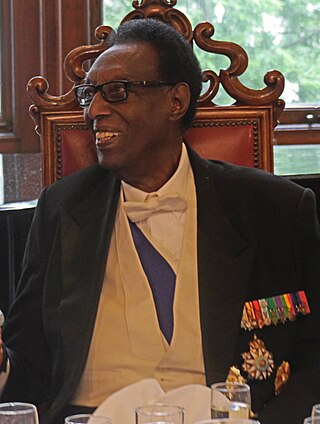
Kigeli V Ndahindurwa was the last ruling King (Mwami) of Rwanda, from 28 July 1959 until the end of the UN-mandate with Belgian administration and the declaration of an independent Republic of Rwanda 1 July 1962. On 25 September 1961, a referendum voted for the abolition of the Rwandan monarchy following the Rwandan Revolution.

Prince Lorenz of Belgium, Archduke of Austria-Este is a member of the Belgian royal family as the husband of Princess Astrid of Belgium. He is the head of the House of Austria-Este, a cadet branch of the House of Habsburg-Lorraine; he has held this position since 1996.

The National Decorations System of Romania is divided into six categories, listed below. It was re-established in 1998 after a 50-year period in which Romania used a Soviet-style system of decorations. It is very similar to the system used in Romania during the interwar period.

The Royal Order of Isabella the Catholic is a Spanish civil order of chivalry and honour granted to persons and institutions in recognition of extraordinary services to the homeland or the promotion of international relations and cooperation with other nations. By law, its Grand Master is the King of Spain, and its Grand Chancellor is the Minister of Foreign Affairs. The Order is open to both Spaniards and foreigners.

Afro-Bolivians are Bolivian people of Sub-Saharan African heritage and therefore the descriptive "Afro-Bolivian" may refer to historical or cultural elements in Bolivia thought to emanate from their community. It can also refer to the combining of African and other cultural elements found in Bolivian society such as religion, music, language, the arts, and class culture. The Afro-Bolivians are recognized as one of the constituent ethnic groups of Bolivia by the country's government, and are ceremonially led by a king who traces his descent back to a line of monarchs that reigned in Africa during the medieval period. They numbered 23,000 according to the 2012 census.

Prince Pedro of Bourbon-Two Sicilies, Duke of Calabria, Grandee of Spain, is the only son of Infante Carlos, Duke of Calabria (1938–2015), and his wife, Princess Anne of Orléans. As primogeniture heir of the kings of the Two Sicilies he is the principal claimant to the headship of the Royal House of Bourbon-Two Sicilies, which ruled the Kingdom of the Two Sicilies before the unification of Italy.

Prince Ferdinand Maria of Bavaria was a prince of the House of Wittelsbach and Infante of Spain, the eldest son and child of Ludwig Ferdinand of Bavaria and his wife, Infanta María de la Paz of Spain. Ferdinand became an Infante of Spain on 20 October 1905 and renounced his rights to the throne of the Kingdom of Bavaria in 1914.

DonJulio Pinedo is the ceremonial king of the Afro-Bolivian community of the Nor Yungas province, crowned in 1992, forty years after the death of the previous king, his grandfather Bonifacio Pinedo. His coronation took place during a Catholic ceremony in the chapel at the hacienda of the Marquis de Pinedo.
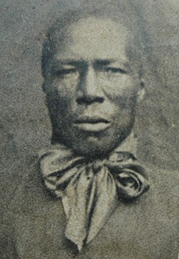
DonBonifacio Pinedo was the King of the Afro-Bolivians from 1932 to 1954. As the ceremonial king, he presided over religious festivities celebrating Saint Benedict the Moor and was responsible for matchmaking in the Afro-Bolivian community. His role was suppressed during the Bolivian National Revolution.
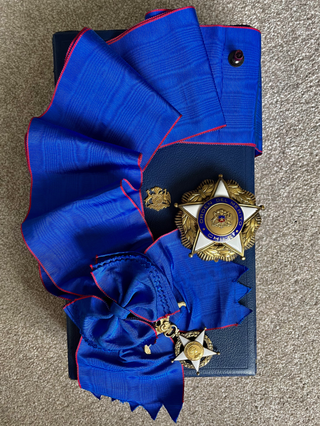
The Order of Merit is a Chilean order and was created in 1929. Succeeding the Medal of the Merit, which was created during the term of the President Germán Riesco through the Minister of War decree No. 1350 on 4 September 1906. This new national distinction was created to recognize the meritorious service provided by foreign military personnel to Chilean officials. The order is only awarded to foreigners.
This is a list of some of the modern orders, decorations and medals of Spain.

The Order of Civil Merit was established by King Alfonso XIII of Spain in 1926. The order recognizes "the civic virtue of officers in the service of the Nation, as well as extraordinary service by Spanish and foreign citizens for the benefit of Spain."
Notable people named Bonifacio include:

Jorge Medina Barra was a Bolivian civil rights activist and politician who served as a member of the Chamber of Deputies from La Paz, representing its special indigenous circumscription from 2010 to 2015.

Ancelma Perlacios Peralta is a Bolivian cocalera activist, politician, and trade unionist who served as senator for La Paz from 2015 to 2020.
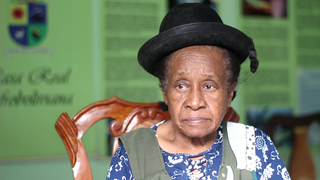
DoñaAngélica Larrea is the Ceremonial Queen of the Afro-Bolivians, as the wife of Ceremonial King Julio Pinedo. She twice served as the mayor of Mururata.

DoñaAurora Pinedo was the Princess Regent of the Afro-Bolivians from 1954 to 1992. As her father, Bonifacio I, had no male heirs, she succeeded him as princess regent following his death in 1954.



















